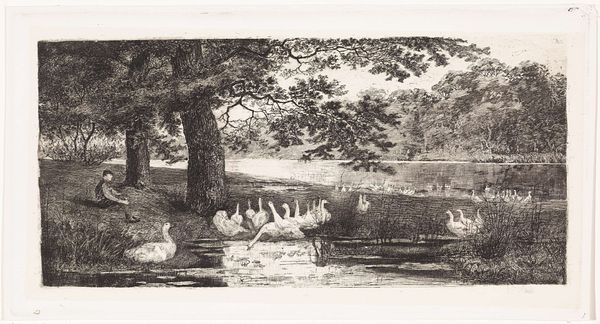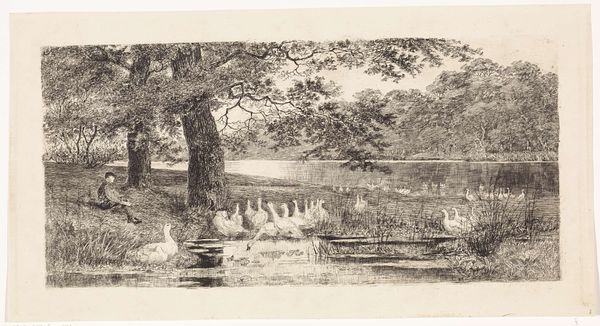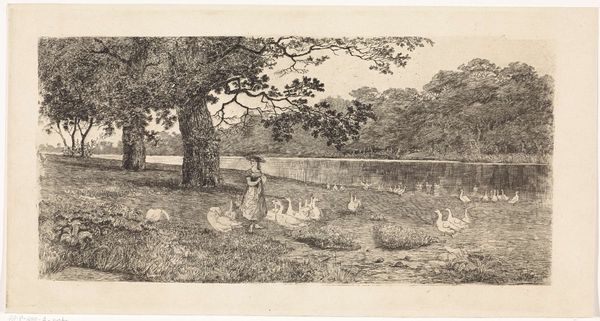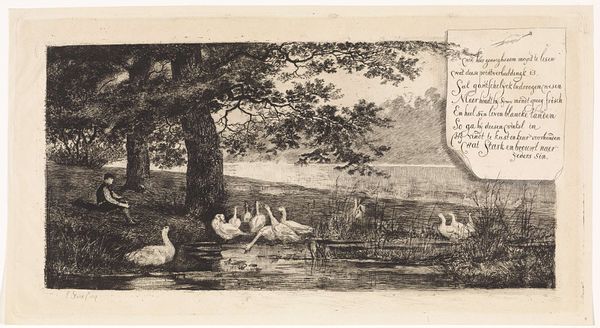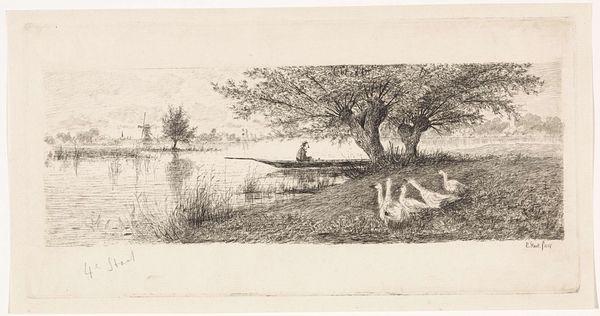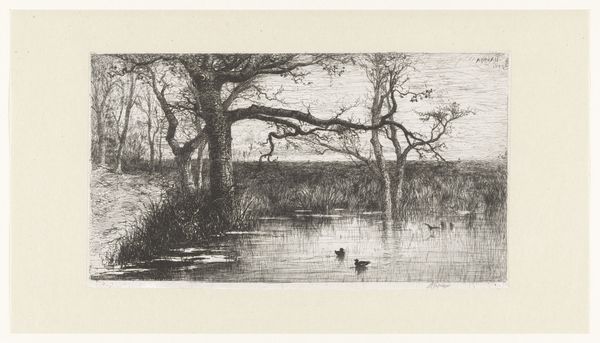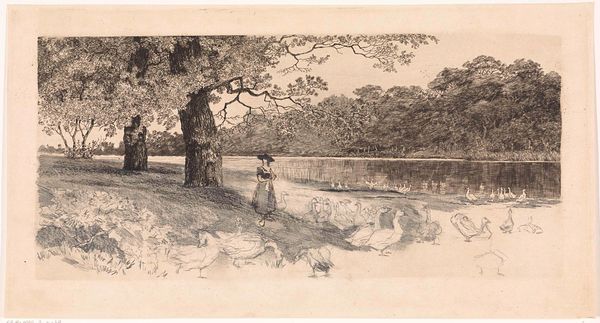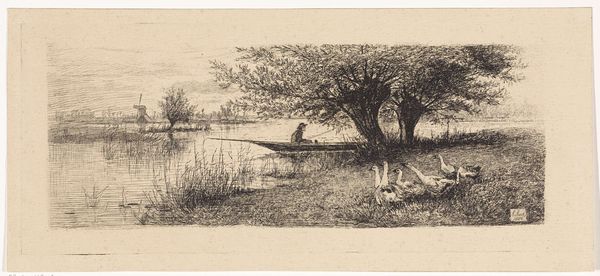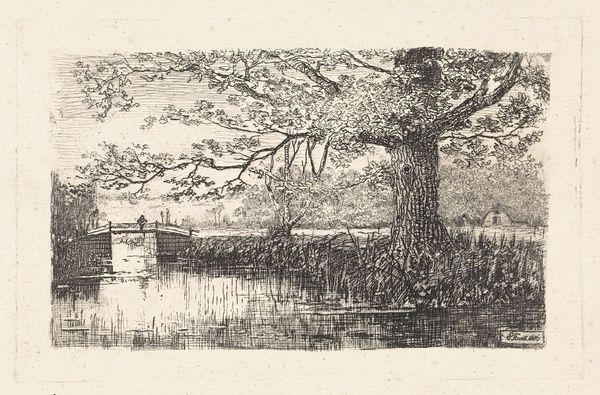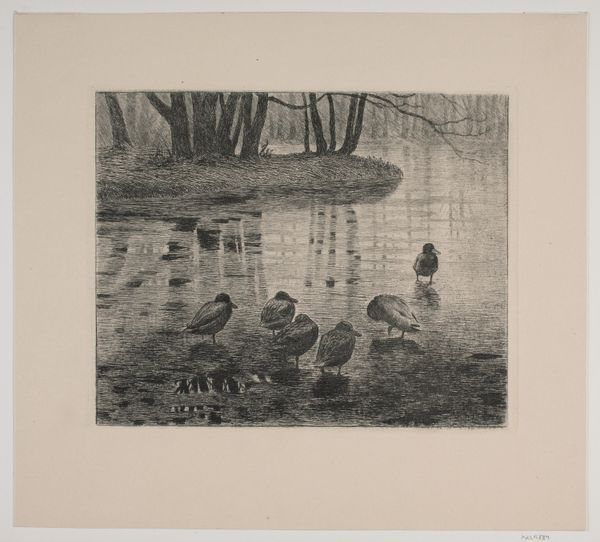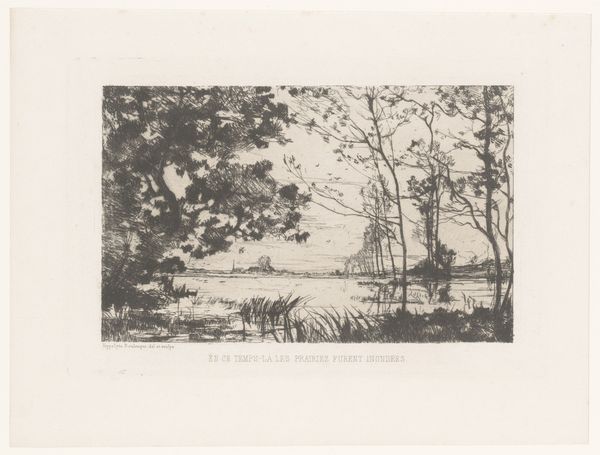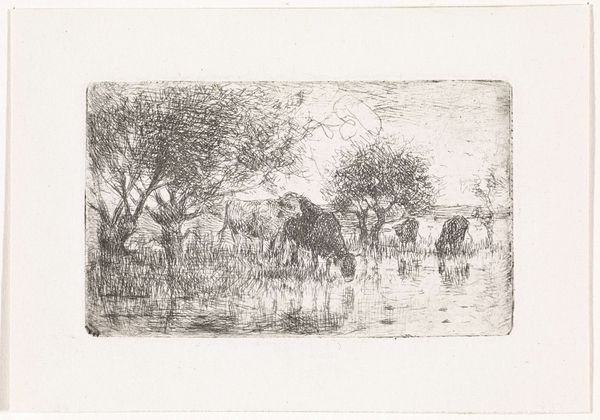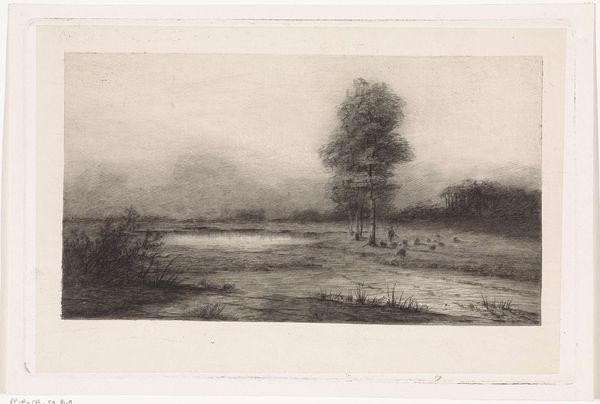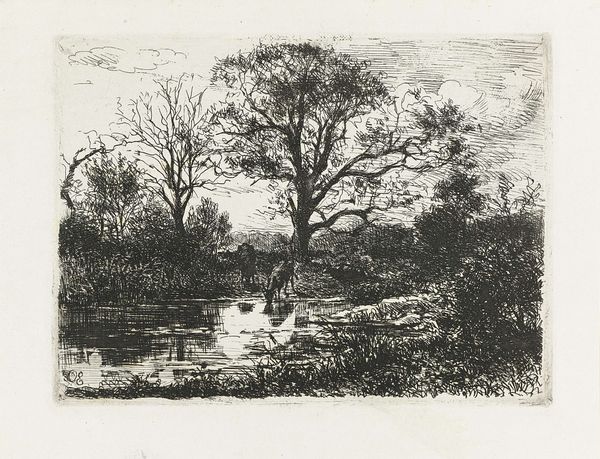
#
pencil drawn
#
tree
#
amateur sketch
#
light pencil work
#
pen sketch
#
pencil sketch
#
old engraving style
#
incomplete sketchy
#
pen-ink sketch
#
pencil work
#
fantasy sketch
Dimensions: height 222 mm, width 417 mm
Copyright: Rijks Museum: Open Domain
Editor: So, here we have Elias Stark's "Geese by the Water," created in 1887. It's a delicate work, almost like a page torn from a naturalist's sketchbook, all in monochrome. There’s a tranquility to it, but something about the solitary figure and the rather dense foliage makes it feel a little melancholy too. What strikes you when you look at this piece? Curator: It is interesting to look at this in the context of 1887. This was a time when ideas about social progress were in stark conflict with widespread environmental exploitation. The geese, usually symbols of nature's bounty, almost feel penned in, surrounded by a meticulously rendered yet dense and potentially overwhelming landscape. Where does the human figure fit within that context, do you think? Editor: I see what you mean. He seems detached, almost passively observing rather than interacting. Like a witness. Curator: Exactly. Consider also how the very act of sketching—documenting this scene—might reflect a growing awareness, or perhaps even anxiety, about the changing relationship between humans and the natural world. This was a period rife with anxieties concerning industrial advancement, so to fix it onto the paper can become an act of trying to retain some semblance of natural control, perhaps? Editor: I never considered that art could embody a sentiment of unease with what many considered to be progress. That’s powerful. Curator: What does progress even mean in this period? Who benefited from this ‘progress’ at whose expense? That can make even the humble goose an image pregnant with multiple meanings. Editor: Looking at the sketch with that context in mind adds layers I hadn't even imagined. Curator: Exactly! Engaging art through critical awareness allows us to interrogate the silent ideologies embedded in our understanding.
Comments
No comments
Be the first to comment and join the conversation on the ultimate creative platform.
